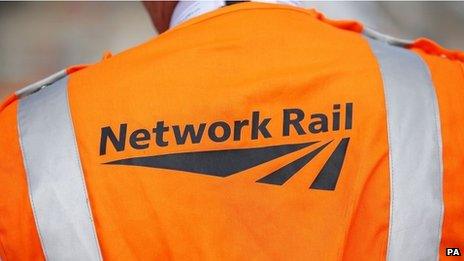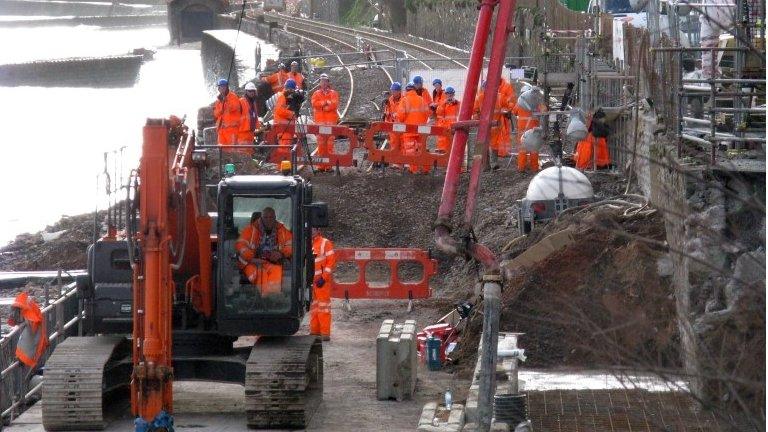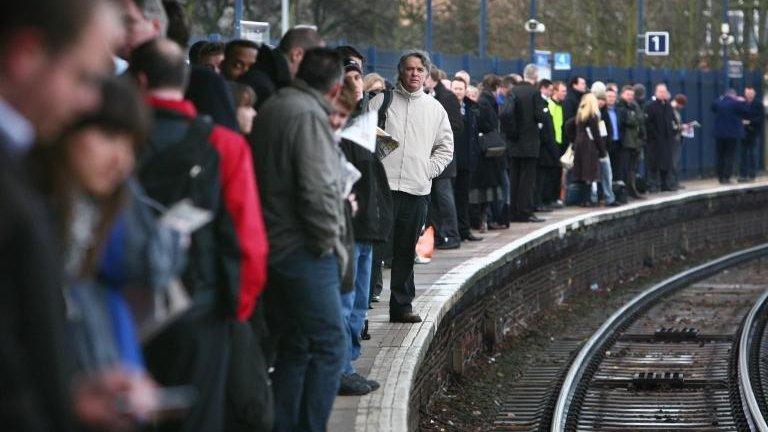Network Rail reports £1bn profit
- Published

Network Rail has reported a pre-tax profit of £1.035bn for the year to 31 March compared with restated profits of £747m a year earlier.
The infrastructure group said the rail network was enjoying a "renaissance", with train passenger numbers at an all-time high.
The number of rail passengers rose 5.7% in the year to 1.5 billion.
But the percentage of trains that ran on time fell to 90%, down from 90.9% a year ago and below its target of 92.5%.
Network Rail blamed train congestion caused by the increase in passenger numbers.
The number of people travelling by train last year has doubled in the 20 years since the privatisation of the rail network.
But Network Rail added severe winter weather, which caused flooding in many parts of the country and destroyed the railway line to the west country at Dawlish, also contributed to the delays.
Revenue rose to £6.3bn from £6.1bn a year earlier, Network Rail said.
It added that its profits would be re-invested in the rail network.
Challenges
Mark Carne, Network Rail chief executive, said: "We are in the middle of a rail renaissance, with record levels of passenger numbers and record levels of investment. This flourishing sector is investing heavily to improve the railway for today and for tomorrow."
He told BBC Radio 4's Today programme the rise in passenger numbers did pose "challenges" for the network, adding he was the "first to acknowledge that we need to do more to improve the reliability of the railway".
"We did not hit our regulatory targets... and I think we know we have to do better and we are very determined to address those issues so that we can provide the high quality of service that passengers expect," Mr Carne said.
In May, Network Rail, announced it had cut the annual bonuses for senior executives from a potential 160% of their salary to a maximum of 20%.
It added directors' salaries would not be increased to compensate for the cut in bonuses.
Network Rail said bonuses would be deferred for three years and could even be eliminated if performance targets - particularly on safety - were not met.
- Published2 May 2014

- Published10 February 2014
